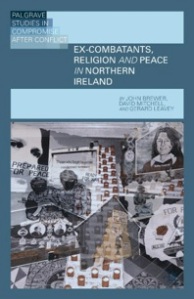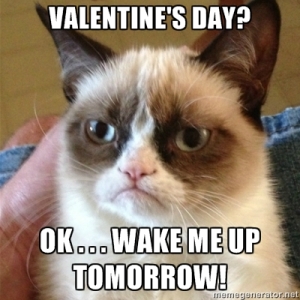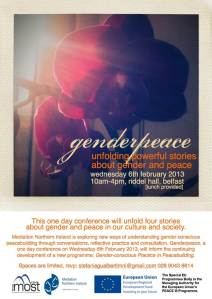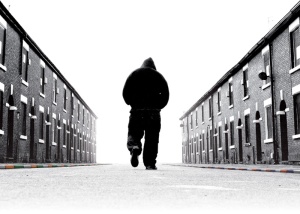 The following is the text from my presentation at the genderpeace conference. It received lots of feedback on the day which I will address in a future post.
The following is the text from my presentation at the genderpeace conference. It received lots of feedback on the day which I will address in a future post.
In trying to formulate a narrative approach to gender conscious practice in peacebuilding, I want to offer some reflections on my own peacebuilding practice and share some of the stories that have informed my own research. Much of my work has been concerned with what the idea of the transformation of masculinities means in ‘post-violent’ Northern Ireland, in particular the case of Loyalist masculinities.
Rather than one singular story I will use a range of stories and quotes that will illustrate some of the features that have characterised Loyalist masculinities. These should not be viewed as universal or absolute. It is important to recognise that there are many forms of masculinities and that they are flexible and changing.
I recently wrote a guest blog post for EamonnMallie.com. My presentation will expand on some of the themes that I briefly explored in that piece, and also add some other material.
A lot of men are not interested in talking about gender because it involves asking ourselves difficult questions about the nature of gender injustice and our role in it. In this short presentation I want to address some of the difficult questions about gender and peacemaking and this means, as a man, asking difficult questions about masculinity, specifically patriarchal masculinity. For the sake of clarification, I would define patriarchal masculinity as the will to dominate power relationships with women and also other men.
I have been greatly influenced by the African-American feminist writer bell hooks. In her book Teaching Community (p.xi), hooks writes: ‘We believed then and now that the most important measure of the success of the feminist movement would be the extent to which the feminist thinking and practice that was transforming our consciousness and our lives would have the same impact on ordinary folks.’
As a result of reading hooks, I have reflected on what it means to be successful as an academic and as someone involved in peacemaking. For me, success is not how many papers we have written, or how many book chapters we’ve contributed, or even how many hits our blog gets. The only measure of our success that ultimately matters is how much our work impacts the lives of ordinary people.
My research allows me to talk about my research only. It does not qualify me to speak on behalf of Loyalism or for Loyalism. It also does not allow me to speak about what is going on in Republican/Nationalist/Catholic communities. I have not attempted to do any comparative work between the two major communities in Northern Ireland. My guess is that some of the issues facing Loyalist men are unique to Loyalist communities, and others are the same as other communities.
Before we begin to talk about the issue of masculinity, we also need to acknowledge that gender does not exist in a vacuum. Unless we understand gender within the wider context of economic injustice and racial injustice we have failed before we begin. Our concern for justice and equality must always transcend our own interests and our own suffering. Unless we are concerned with injustice and inequality everywhere we cannot claim to be concerned with addressing gender injustice and inequality.
It is within this context that we can begin to understand the gendered identity of Loyalist men.
The theologian Stanley Hauerwas calls the low-class white male the most voiceless person in our society:
‘The most voiceless person in our society is the low class white male….What it means for them to be voiceless is that they don’t have a story that can make their lives intelligible. The only stories around are, ‘You must be lazy because you didn’t get ahead,’ and I think that is an extraordinary destructive story….Many [lower class white males] live in a hopeless world so what you do is drink, screw, and die.’ (Iconocast podcast episode 17)
The effects of economic injustice are of course not unique to Loyalist communities. A Republican ex-prisoner I know tells the story that when conducting a workshop with a group of Republican youth, he asked if any of them had ever been in the same room as a Loyalist before. One of them replied, ‘For fucks sake, we’ve never even been in the same room as a flipchart before.’
The challenge for Loyalist young men growing up is dealing with an overwhelming sense of hopelessness. My own workshops with Loyalist young men sometimes involve an exercise called ‘What is my dream?’ When faced with this question many young men answer that their dream is to win the lottery or to become a porn star. Young men are growing up in a place so devoid of hope and opportunity that their greatest dream is to win millions of pounds or to get paid to have sex.
The crisis facing Loyalist communities is one of abandonment: economically; socially; and politically. It is only when people can see a way out that they will have hope.
In my article on Eamonn Mallie’s website, I described Loyalist masculinity as ‘the elephant in the peace process’, to which someone replied: ‘There are a lot more elephants in that room’. And that may well be true, but the reason I chose that analogy was because in my view Loyalist masculinity has been mostly ignored, largely maligned, and often misunderstood.
I think there is so little education around masculinities because there is so little understanding about what masculinity is and how it can be approached.
In her book The Will To Change, ‘bell hooks’ argues that if we take away the privileges that patriarchy has given men then we would find that they are suffering just as much as women. In the case of Loyalism, patriarchal masculinity has left Loyalist men brutalised and suffering, with nowhere to go.
The dominant form of Ulster Loyalism that emerged during the period of ‘the troubles’ was defined by heavily militarised notions of masculinity. In many areas men were often willing to take up arms, of one sort or another. For some this meant joining the British army, for others this meant joining Loyalist paramilitary organisations. In the same way that young men are told that the army will turn them into ‘real men’, so too ‘real men’ joined the ranks of paramilitary organisations. A UVF ex-prisoner told me:
‘Men in this area would still, always down through the history of this area…always want to be in the army of some sort.’
On the walls of public housing estates and inner-cities, the figure of the Loyalist ‘warrior’ became immortalised in the form of murals. A UDA ex-prisoner recalled:
‘Gunmen in our estates, and the places where we lived, were idolised. They were heroes. They were heroes, full stop.’
Young men growing up in Loyalist areas often had to deal with the triple effects of poverty, an education system which rendered many of them second class by the age of eleven, and the wider effects of deindustrialisation and the loss of jobs. In this context paramilitary organisations provided many men with a story that gave them both meaning and status that was difficult to attain elsewhere. The UDA ex-prisoner summed up his attitude towards education growing up:
‘When we grew up, ‘Education’s for fruits!’ You know? It was for gays. You know? ‘Pffft, don’t touch that, we want guns! Gimme guns, gimme guns!’’
He went on to describe the attraction of the figure or the Loyalist ‘warrior’:
‘Bonfires where I grew up, see every eleventh night? Six, ten, sometimes fifteen Loyalist – UDA – gunmen, out to the bonfire, all machine guns, the lot, all the kit [makes noises of machine guns going off], the full monty. You’re standing there with wee lads seeing all these big lads coming out with AK47s and all, do you know what I mean? And giving it large. It was like rock n roll and toy soldiers right in your front garden, you know what I mean? Wow, give us some of that! No more ‘A-team’, I want in there, know what I mean? That is what you were aspiring to, you were seeing that, you know? So you had that planted in your head. Gimme that, gimme that. And you seen the power it give the men, you know what I mean? It give them recognition within the community, you know what I mean? That’s what the kids aspired to do. Kids wanted to go out and kill Catholics, as simple as that. That’s it. We didn’t play cowboys and Indians. We played Provies and UDA, do you know what I mean? Seeing who could stiff the most, you know? That’s the way we played it when we were growing up, you know?’
It was while conducting a focus group with Loyalist women that I first became aware of the deep suffering of Loyalist men as a result of patriarchal masculinity. When asked about men and their emotions, one woman replied:
‘I look at some people now and I think they’re dead behind the eyes.’
Others added that many Loyalist men were:
‘Closed. Shut.’ ‘Paranoid.’ ‘Switched off.’ ‘Haunted.’ ‘Desensitized.’
Later, a UDA ex-prisoner described to me how this process of emotional detachment took place:
‘Everybody changed in so many ways….And you do become hardened. Death means nothing to you. Even life itself, you know, the value of life. You’re prepared to give your life. You’re prepared to go to jail. You’re prepared to give up your freedom and your family. So you go step by step by step, [from] being what you would call normal to being a soldier, or a hard-line paramilitary.’
One ex-UVF prisoner described how this took its toll on family life:
‘If you harden your heart, well that’s gonna be hardened towards your relationships and other areas, whether it be your wife, your kids or even the way you talk and treat your friends, you know. In them days you didn’t wanna show sign of weakness. Everybody was fucking John Wayne.’
Loyalist patriarchal masculinity has claimed more victims than many of us want to admit. It crushed the souls of those who managed to make it out alive and exiled them to a land of emotional disconnection. More than one Loyalist ex-prisoner has told me they are afraid to sleep because they might wake up screaming in the night. It is common to hear stories of Loyalist men, decades after their involvement in the conflict, dealing with alcoholism, drug addiction, and other mental health issues. Others, unable to cope at all, have taken their own lives.
Some might argue that these men chose their own path and now they have to deal with the consequences. Some might say they deserve what they get. Many people are so enraged by the suffering caused by Loyalist men that they refuse to acknowledge that Loyalist men have also suffered. And yet, if we are to all move forward together towards a shared future for everyone, we can not afford to ignore the elephant in the peace process. Acknowledging the suffering of Loyalist men might provide a point of connection that ultimately leads to transformation of Loyalist masculinity.
So what about the transformation of Loyalist masculinities?
An article on the bbc website recently included a quote from a UDA leader, on how Loyalist masculinity is changing: ‘We say now arm ourselves with education….Five years ago, two people started university within our organisation; this year 16 people. Sixteen young lads and girls started university, so we’ve been on that journey, we’ve been on the journey of education because education is the new power.’
What is interesting about this quote is that it recognizes that patriarchal masculinity and the old belief that education is for girls and gays has not served Loyalist men well. However, it represents only a partial change from patriarchal values. Where it maintains a loyalty to patriarchal values is that he describes education as ‘the new power’. This is a partial transformation from violent patriarchal masculinity to what hooks calls ‘nice-guy’ patriarchal masculinity. It does not represent a full transformation of patriarchal values but it is a step in the right direction. True transformation does not take place in a moment but in the context of a post-violent society it is a slow, discontinuous, and uneven process. Transformation from patriarchal values means more than changing from violent patriarchal masculinity to nice guy patriarchs, it requires transcending power and the will to dominate.
 A new book that has just been published that will be of interest to students and academics of the Northern Ireland conflict, as well as peace work practitioners, is ‘Ex-combatants, Religion and Peace in Northern Ireland‘ by John Brewer, David Mitchell, and Gerard Leavey.
A new book that has just been published that will be of interest to students and academics of the Northern Ireland conflict, as well as peace work practitioners, is ‘Ex-combatants, Religion and Peace in Northern Ireland‘ by John Brewer, David Mitchell, and Gerard Leavey.














